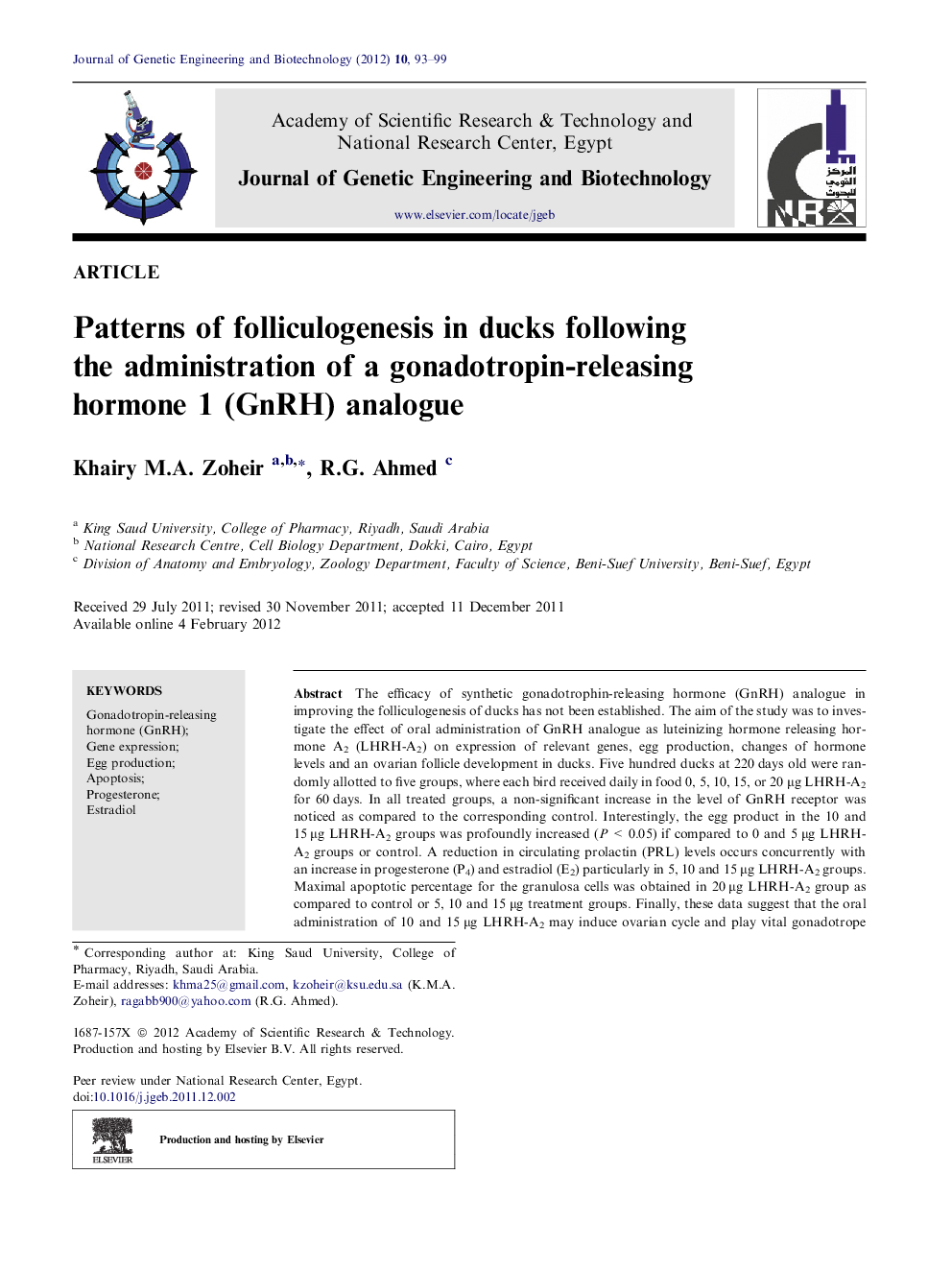| Article ID | Journal | Published Year | Pages | File Type |
|---|---|---|---|---|
| 2087977 | Journal of Genetic Engineering and Biotechnology | 2012 | 7 Pages |
The efficacy of synthetic gonadotrophin-releasing hormone (GnRH) analogue in improving the folliculogenesis of ducks has not been established. The aim of the study was to investigate the effect of oral administration of GnRH analogue as luteinizing hormone releasing hormone A2 (LHRH-A2) on expression of relevant genes, egg production, changes of hormone levels and an ovarian follicle development in ducks. Five hundred ducks at 220 days old were randomly allotted to five groups, where each bird received daily in food 0, 5, 10, 15, or 20 μg LHRH-A2 for 60 days. In all treated groups, a non-significant increase in the level of GnRH receptor was noticed as compared to the corresponding control. Interestingly, the egg product in the 10 and 15 μg LHRH-A2 groups was profoundly increased (P < 0.05) if compared to 0 and 5 μg LHRH-A2 groups or control. A reduction in circulating prolactin (PRL) levels occurs concurrently with an increase in progesterone (P4) and estradiol (E2) particularly in 5, 10 and 15 μg LHRH-A2 groups. Maximal apoptotic percentage for the granulosa cells was obtained in 20 μg LHRH-A2 group as compared to control or 5, 10 and 15 μg treatment groups. Finally, these data suggest that the oral administration of 10 and 15 μg LHRH-A2 may induce ovarian cycle and play vital gonadotrope role during the folliculogenesis process in ducks. This study also demonstrated a need to concentrate further research on the potential effect of GnRH during the early period to improve the reproductive performance.
